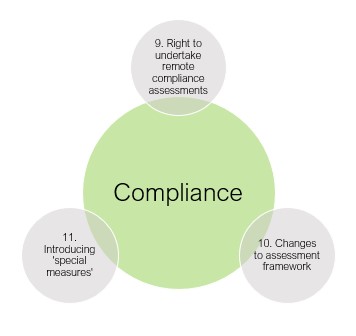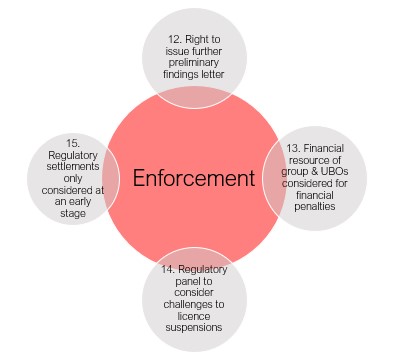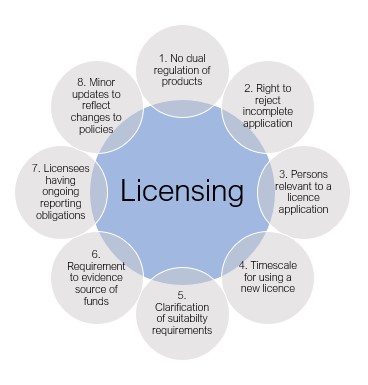Gambling Commission Advice to Government
The Gambling Commission has published its advice to Government (the “Advice”), as part of the review of the Gambling Act 2005 terms of reference and call for evidence, providing advice on each of the following topics:
- effectiveness of the regulatory system;
- online protections, players and products;
- safer gambling and public health messaging;
- advertising, marketing and sponsorship;
- the Commission’s powers and resources;
- wider funding for research, prevention and treatment;
- consumer redress;
- age limits and verification;
- protections for young adults; and
- land-based gambling.
In the Introduction, the Gambling Commission explains:
“In forming our advice, we have considered the widest range of evidence and applied a rigorous, consistent, and transparent evidence assurance process. The evidence assurance process enabled us to determine the strength of the evidence base and the weight that could be applied to the formulation of our recommendations. Where there was a lack of conclusive evidence, we took the position that this did not automatically mean that conclusions could not be reached or that action should not be taken. In some of our recommendations we have applied the precautionary principle where the potential for harm existed. We have, however, been transparent in our advice where we are advocating a precautionary approach.”
Andrew Rhodes, Gambling Commission CEO, said:
“The gambling industry has changed significantly since 2005 and our advice sets out changes that will ensure Britain is the safest and fairest place to gamble in the world. The review is a once-in-a-generation opportunity to deliver positive change for gambling in Great Britain and for all people impacted by it. Everyone at the Commission welcomes today’s publication of the White Paper and is determined to work with Government and partners to make these changes a reality. Given the correct powers and resources, the Gambling Commission can continue to make gambling safer, fairer and crime free. This White Paper is a coherent package of proposals which we believe can significantly support and protect consumers, and improve overall standards in the industry. As the detailed implementation of the review now begins, we will also be reiterating to all operators that the Commission will strongly maintain its focus on consumer protection and compliance.”
The Advice was published very shortly after the long-awaited publication of the Gambling White Paper on 27 April 2023.
We will review the Advice in detail and will be publishing our insights over the coming weeks and months.


